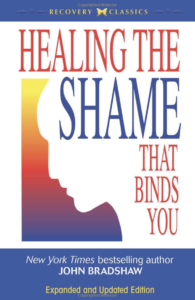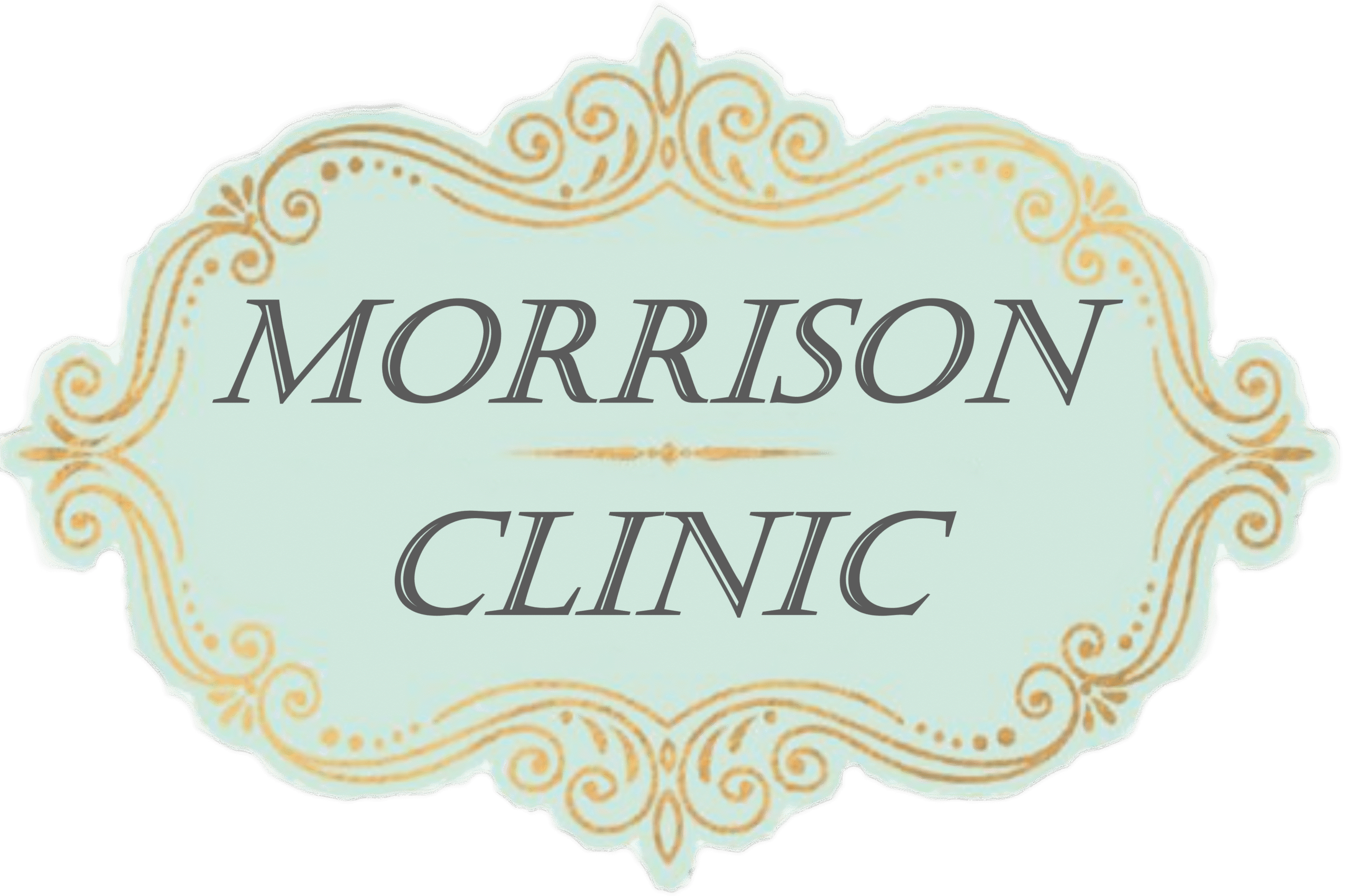Do you have a guilty conscience?
Posted on: July 31, 2019, by : Amy Morrison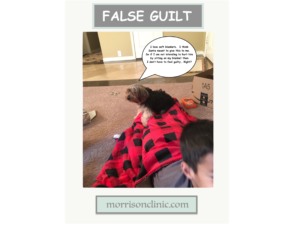
By Amy Morrison Psychiatric PA and Medical Director at the Morrison Clinic
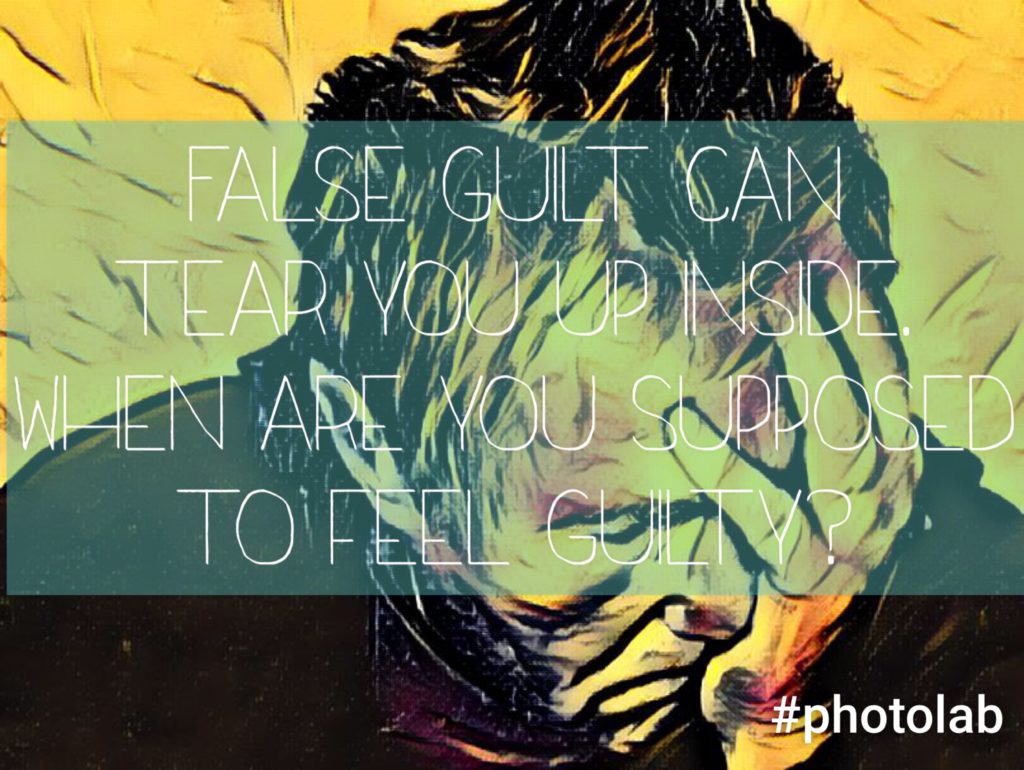
Are you plagued by feelings of guilt? Does your stomach churn when someone is upset with you? Do you seek excessive reassurance from others? Do you avoid conflict whenever possible? When conflict is unavoidable do you find yourself consumed by distress until a resolution has been found? If you answered yes to any of these questions then you maybe suffering from false guilt.
False Guilt
False guilt is pretty self explanatory. It happens when you feel inappropriate guilt and typically occurs in people who were shamed in their past. Not everyone reacts the same way to being shamed. However people who suffer from false guilt tend to be people pleasers who do not cope well when other people are upset with them . By pleasing the person who shamed them, People Pleasers found a path of least resistance that led to less conflicts. However, this unhealthy dynamic leaves them vulnerable to excessive feelings of guilt and shame. In fact they often tend to find themselves in relationships with people who are Shamers.
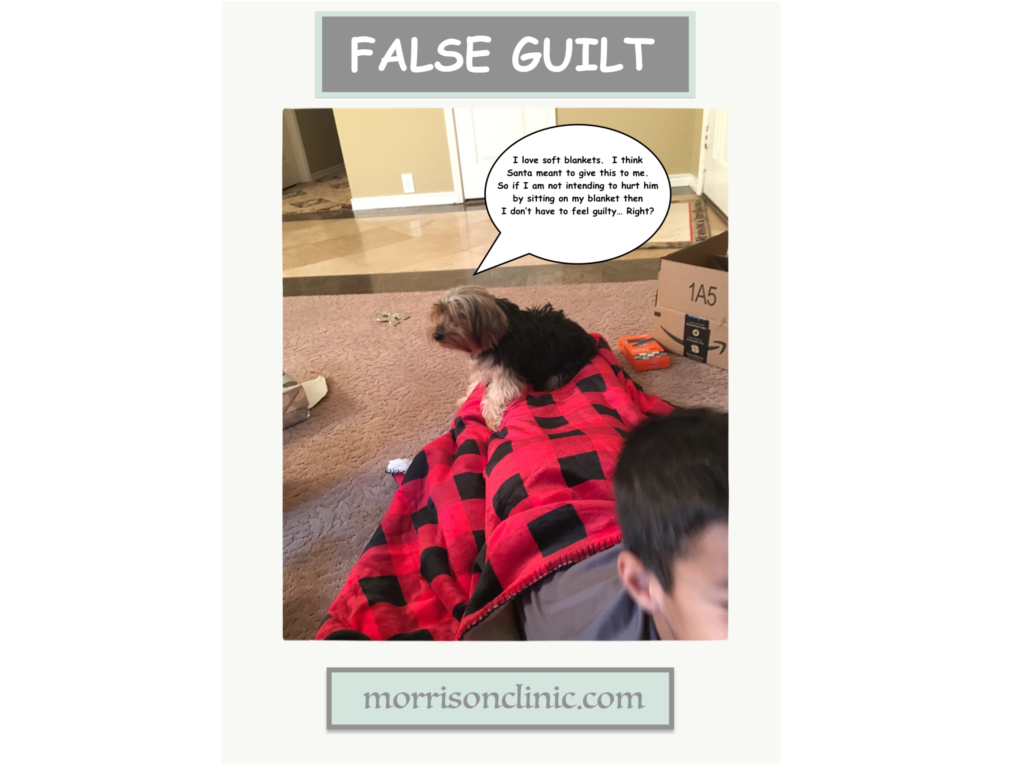
Shamers
Shamers are people who manipulate others. They do this by casting their emotions and expectations onto another person or by shaming others in order to get the result they want. Shamers do not stay in relationships with emotionally healthy people for very long because their bad behavior is not tolerated. Instead Shamers tend to gravitate toward People Pleasers who avoid conflict. People Pleasers do not set good boundaries and own other people’s emotions and disappointments. As a People Pleaser they look for ways to justify other people’s actions and like a bad habit, they too easily accept bad behavior.
People Pleasers
So to all of those People Pleasers out there I have an easy rule of thumb to remember when it comes to feeling guilty. The only time you should feel guilty is when you intentionally behaved in a manner that you knew would cause either physical or emotional harm to that person. In that circumstance you should own your bad behavior’s effect on another person. You should not only apologize, but do your best to determine how you can repair the damage you caused. However on the flip side you should not feel guilty if someone is physically or emotionally harmed by your actions if you did not intend for them to suffer pain. You can express empathy for their suffering. However you do not own their feelings and you do not feel guilty for your actions.
I hope this simple rule of thumb can help you more easily determine when you should feel guilt. By being able to draw a line on when you should feel guilty, you will find it easier to keep healthy emotional boundaries. Healthy emotional boundaries will lead to less conflicts with friends, families, and co-workers. Imagine how much healthier your relationships with other people can become if you learn how to stop owning other people’s emotions. You can finally let go of the guilt and shame that plagues you. If you want to work on this more on your own you should consider taking steps to heal from the shame of your past. I would recommend working with a licensed therapist and I also highly recommend this book:
